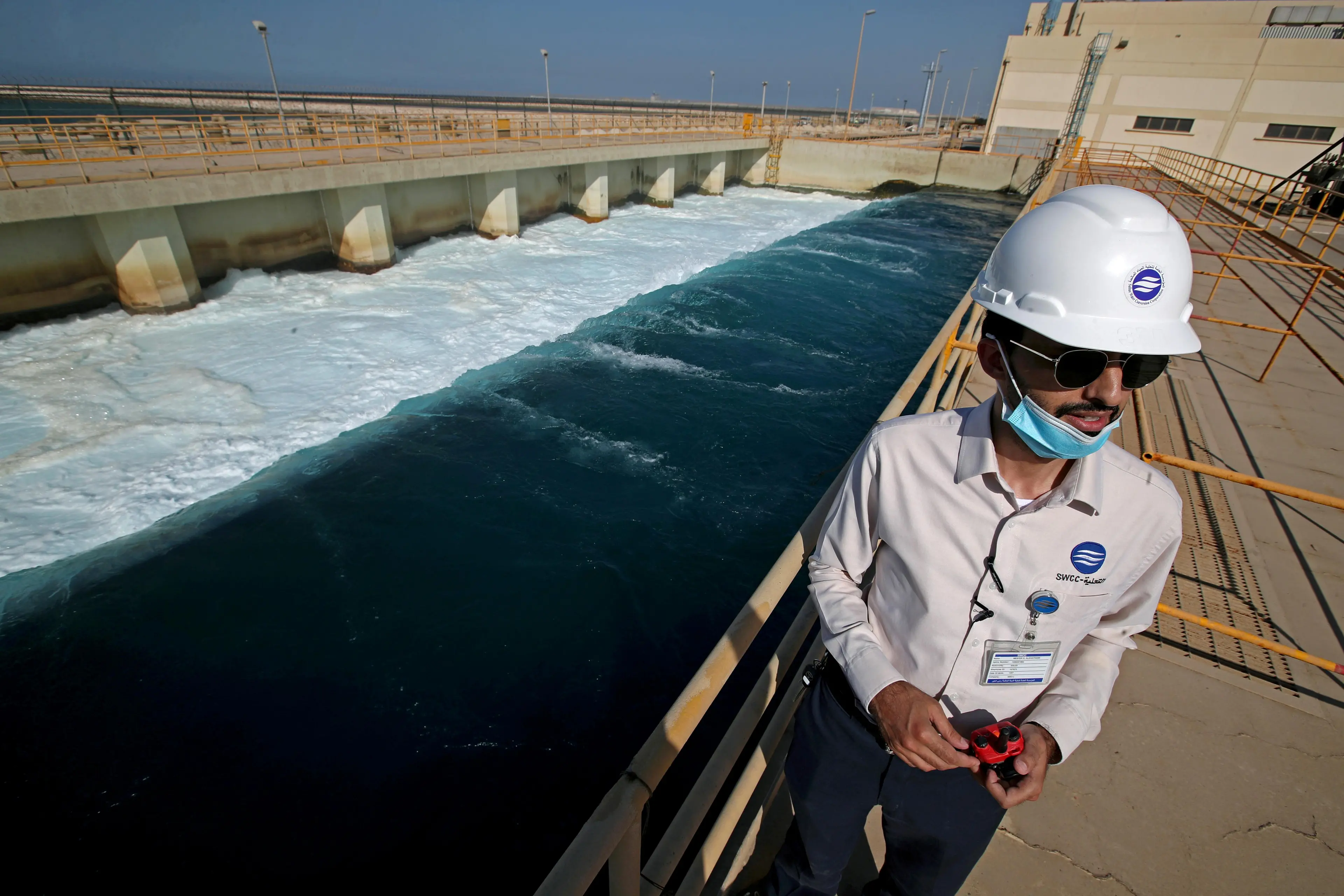PHOTO
AL JUBAIL, Saudi Arabia - The world's largest producer of indus water, Saudi Arabia also makes the most amount of waste from this energy intensive industry; but local researchers are trying to change that.
Ahmed al-Amoudi, head of a government-run desalination research institute, sees a future where industrially useful minerals such as sodium chloride salt, magnesium and calcium are extracted from the seawater alongside clean water, and no highly-salty wastewater - known as brine - flows back into the sea.
"We can benefit from the sea and its treasures by the extraction of minerals," Amoudi said.
Amoudi works for the government's Saline Water Conversion Corporation (SWCC), which says it makes 69% of Saudi's desalinated water. Its researchers have filed several patents on technologies to extract minerals and other products, he said.
An aim is also to reduce the amount of concentrated brine that flows back into the sea, which can affect marine ecosystems.
A 2019 United Nations-backed global study of the desalination industry found the world's around 16,000 plants produced on average 1.5 litres of brine for every litre of fresh water.
Saudi Arabia produces the most amount of brine, at 22% of the world's total, the study said.
At al-Jubail, the world's largest desalination plant which makes more than 1.4 million cubic metres of water daily, treated waste brine plumes back into the Arabian Gulf.
Amoudi said the SWCC hopes by May next year to be extracting magnesium at one desalination plant, and at another to make sodium chloride for use in the petrochemical industry.
Desalination is expensive and energy-intensive, but in hot, water-scarce climates like Saudi Arabia - with a population of 34 million - and neighbouring Gulf countries, it is relied upon.
Last week SWCC said it had completed construction of seven new desalination plants, taking its total number of installations to 33. A few more plants are privately operated.
Saudi's eastern coast not only hosts the record-breaking al-Jubail plant, but also the world's largest plant using more modern hybrid desalination technology, at Ras al-Khair.
These plants serve east coast cities and also pipe desalinated water 400km into the desert to the 7 million residents of the capital Riyadh.
(Writing by Lisa Barrington, Editing by William Maclean) ((lisa.barrington@thomsonreuters.com;))





















